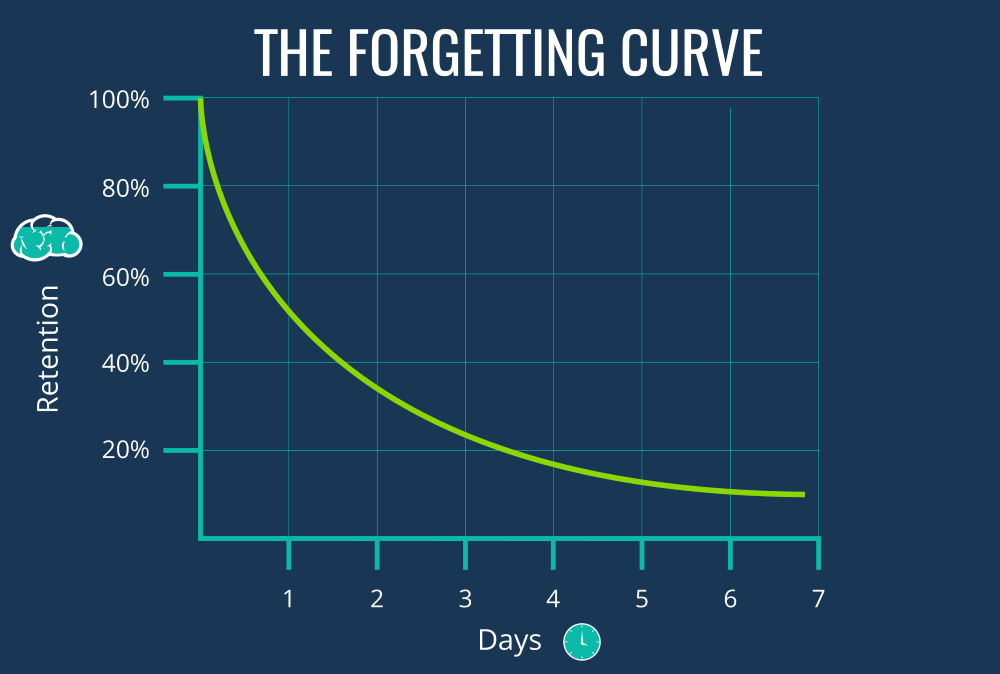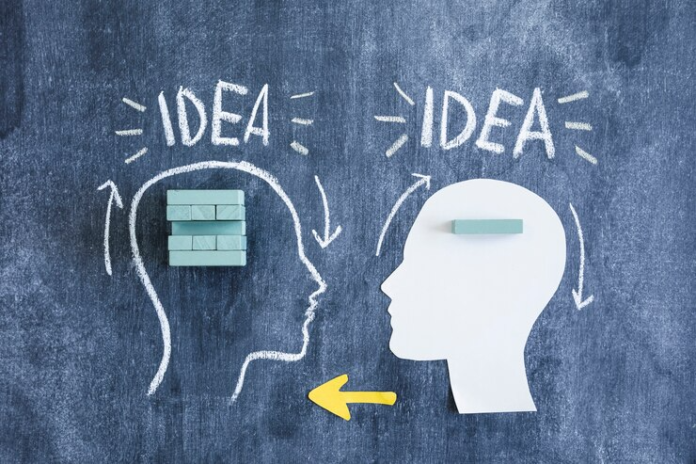Memory Makeover: Proven Strategies to Enhance Recall, Focus, and Cognitive Function
In today’s fast-paced world, where information overload is a constant challenge, keeping our memories sharp is more important than ever. Whether you’re a student juggling exams, a professional striving for peak performance, or someone wanting to remember names and faces better, a memory makeover is within your reach.
This blog post will explore a range of proven strategies to boost your recall, focus, and overall cognitive function. From practical techniques like mnemonic devices to lifestyle habits that promote brain health, we’ll equip you with the tools you need to sharpen your mind and unlock your memory potential. So, ditch the frustration of forgetting and embark on a journey to a sharper, more confident you!
Strategies to enhance memory and focus
1. Get enough sleep
A crucial first step in your memory makeover is prioritizing sleep. When you’re sleep-deprived, your brain struggles to consolidate new information and memories. Aim for 7-8 hours of quality sleep each night. This allows your brain to process and solidify what you’ve learned throughout the day, making those memories more readily accessible later. Think of sleep as a power nap for your memory; the more you prioritize it, the more effective your memory makeover will be.

2. Use elaborative rehearsal
Unleash the full potential of your memory makeover with elaborative rehearsal! This technique goes beyond simply repeating information. Instead, it involves actively connecting new knowledge to things you already understand. Imagine memorizing historical dates; instead of rote repetition, try associating them with personal events. Perhaps the French Revolution falls on your birthday, or World War II began the year your sibling was born. These personal connections create a more robust memory network, making recall a breeze. So, ditch the mindless repetition and embrace the power of elaborative rehearsal for a lasting memory makeover!

3. Exercise
Elevate your focus to a whole new level with the power of exercise! Incorporating physical activity into your routine isn’t just about building muscle; it’s a potent strategy for unlocking significant focus enhancements. Regular exercise increases blood flow to the brain, delivering a critical boost of oxygen and nutrients that fuel your cognitive engine. This improved circulation promotes the creation of new brain cells and strengthens existing connections, leading to sharper focus and enhanced information processing. So, lace up your shoes, hit the gym, or take a brisk walk—even moderate exercise can significantly boost your focus throughout the day. Remember, a healthy body translates to a sharper mind, and that’s a core principle for achieving lasting focus enhancements and maximizing your cognitive potential.

4. Forgetting curve
Our brains aren’t like perfect filing cabinets; they’re more like intricate webs of connections. New information forms pathways between brain cells, but these connections weaken over time if left unused. This natural process, known as the forgetting curve, describes the rapid decline in memory retention without active reinforcement. Imagine recalling a childhood friend’s name; the connection between the memory and the retrieval cue might have weakened due to cognitive disconnection. The forgetting curve highlights the importance of spaced repetition to strengthen these connections. We rebuild and reinforce the cognitive pathways by revisiting information at spaced intervals, preventing them from fading into oblivion. This active retrieval process combats cognitive disconnection and keeps those precious memories readily accessible.

5. Chunking
It is challenging to learn something more or extra, but you can memorize things chunk by chunk. Divide the information into pieces and memorize them one by one. A large piece of information is challenging to settle in the mind and learn regularly, but when it is divided into pieces, you can easily recall it and save it in your memory.

6. Meditate
Meditation can be an effective tool in your memory makeover arsenal. It goes beyond simply clearing your mind; it cultivates focused attention and heightened awareness. This practice strengthens the prefrontal cortex, the brain’s region responsible for memory, focus, and cognitive appraisal—the process of evaluating information and situations. By quieting the mental chatter and improving your ability to stay present, meditation allows for a more thorough and accurate cognitive appraisal of new information. This deeper understanding leads to more robust memory encoding, making it easier to consolidate and retrieve information later. Regularly incorporating meditation into your routine can significantly enhance your cognitive appraisal skills, leading to sharper memories and a more focused you.

7. Test yourself
Remember to underestimate the power of self-testing in your memory makeover journey! Simply reviewing information passively isn’t enough to solidify it in your long-term memory. Active retrieval, the act of testing yourself, strengthens the neural pathways crucial for optimal cognitive function. Imagine trying to enhance a muscle—the more you exercise it, the stronger it becomes. You’re testing yourself through flashcards, practice quizzes, or even self-recitation, which forces your brain to recall information actively. This process reinforces the neural connections and improves overall cognitive function, making retrieval easier in the future. So, itch the passive studying and embrace the challenge of self-testing—it’s a surefire way to solidify memories and elevate your cognitive function to a whole new level.

Ready to ditch the frustration of forgetfulness and unlock your memory potential
8. Writing
Pen and paper can become powerful allies in your memory makeover. Writing things down isn’t just about creating a record; it’s a multi-sensory learning experience that strengthens memory encoding. The act of physically writing engages different brain areas, fostering deeper cognitive processing of information. I’m taking notes in class; jotting down key points forces you to analyze and synthesize the material actively. This deeper engagement leads to a stronger memory trace, making recall a breeze later. So, try passive highlighting and embrace the power of writing. When taking notes, journaling, or creating mind maps, incorporating writing into your learning routine can significantly enhance your memory and cognitive function.

9. Healthy diet
Fuel your focus and memory makeover with a brain-boosting diet! What you eat directly impacts cognitive function. A diet rich in brain-healthy nutrients like omega-3 fatty acids, antioxidants, and B vitamins provides the building blocks for optimal brainpower. Thin fatty fish like salmon, antioxidant-packed berries, and leafy greens for vitamin K. Remember, healthy fats in nuts and avocados contribute to improved blood flow and sharper cognitive processing. Incorporating these brain-nourishing foods into your diet provides your brain with the required fuel it needs to perform at its peak, enhancing both focus and memory retention. So, ditch the sugary snacks and processed foods and embrace a diet rich in brain-friendly nutrients – your memory will thank you for it!

10. Avoid stress
Chronic stress can wreak havoc on your memory makeover efforts. When stressed, your body releases cortisol, impairing memory formation and retrieval. Image one tries to concentrate on a task with a racing heart and buzzing thoughts, so achieving focus enhancements is nearly impossible. Stress also disrupts sleep, another crucial factor for memory consolidation. By managing stress through relaxing techniques like breathing or meditation, you create a calmer environment where your brain can function optimally. This translates to improved focus throughout the day, enhanced memory encoding, and a better chance of retaining information. So, prioritize stress management, a key ingredient in achieving lasting focus enhancements and maximizing your memory potential.

11. Drink coffee
Consider incorporating coffee into your memory makeover routine but with a caveat. Coffee’s key ingredient, caffeine, boasts potential memory benefits, particularly in consolidation. Studies suggest caffeine might enhance your ability to solidify new information into long-term memory after learning. Imagine studying for an exam A cup of coffee after your study session could potentially strengthen the memory traces of the information you just reviewed. However, moderation is key. Excessive caffeine intake can have the opposite effect, hindering focus and memory consolidation. So, enjoy your coffee strategically, and prioritize a healthy sleep routine for optimal memory performance.

12. Focus enhancing games
Give your memory a playful boost with focus enhancing games! The games go beyond simple entertainment; they provide a fun and interactive way to challenge your brain and improve memory function. Classic games like Sudoku and memory match require concentration and strategic thinking, strengthening the neural pathways crucial for memory encoding. I’m playing a memory game; recalling the location of each card trains your brain to form solid associations and improves your ability to retain information. Modern brain training apps offer a variety of focus enhancing games that target different cognitive skills. By incorporating these games into your daily life, you can make memory training an enjoyable experience. So, itch the mindless scrolling and embrace the challenge of focus enhancing games—they’re a fun and effective way to sharpen your memory and boost your cognitive fitness!

13. Socialize
It is scientifically proven that having good relationships with people like friends and family keeps your mind healthy and prevents dementia. Regularly socializing and having friends meet up boosts your memory, enhances your focus, and keeps your mind fresh.

14. Stay organized
De-clutter your environment, de-clutter your mind! Gaining an organized physical space can impact your memory makeover. When your surroundings are cluttered and chaotic, it creates a mental burden, making it harder to focus and remember things. Imagine searching for your keys in a messy room—the mental strain disrupts your cognitive processes. Creating a system for organizing your belongings frees up mental space for what truly matters. A designated spot for keys, a to-do list for daily tasks, and a filing system for important documents all contribute to a calmer, more organized mind. This improved mental clarity translates to a sharper focus and enhanced memory function, allowing you to retain information more effectively. So, embrace organization—it’s a powerful tool for unlocking your memory potential!



